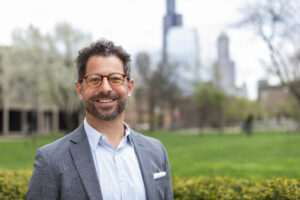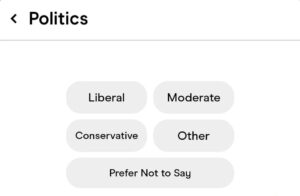The county-wide summit, sponsored by the circuit court clerk, the state’s attorney and the public defender, has been held for the past two years, and volunteers are expecting record numbers this year.
According to Dorothy Brown, Cook County’s circuit court clerk, there are more than 10,000 ex-offenders in the county who are eligible to have their records either sealed or cleared. This year, her office decided to send out letters to former offenders who qualify, hoping to spread the word.
Lawyers will be there to help people fill out applications to petition for expungement and sealing. When a record is expunged, it is wiped clean as if it never existed . A sealed still exists but remains in a courthouse, inside a closed envelope, so no one will know the acutual conviction. Chicago and Illinois law enforcement agencies also will hold sessions explaining how they review expungement petitions.
Brown says she decided to host the summit after sponsoring a union job fair a few years ago. She says 500 people came from the West Side and 1,500 from the South Side, but that people were talking about their incarceration records more than the jobs.
“They spent so much time asking me about expungements, we couldn’t even get to the job portion,” said Brown.
“I realized that people were hurting.”
And some communities are hurting more than others. Fifty-four percent of prisoners released into Chicago go to seven of Chicago’s 77 neighborhoods. All of them are on the West and South sides of the city, according to a 2005 Urban Institute report: Chicago Communities and Prisoner Reentry.
These neighborhoods also have high unemployment rates. For instance, the institute reported that 32 percent of Austin residents are unemployed, and North Lawndale has an unemployment rate of 61 percent. On the South side a staggering 70 percent of people in West Englewood are jobless. Subsequently, these areas also have high poverty rates.
According to the clerk’s office, jobs are the number one reason people want their records cleared. Many ex-offenders find it difficult to get hired once an employer knows they have a record. That’s what Michael Hudson, a former Chicago police officer, realized after he was released from prison in April 2005.
Hudson was convicted in 1998 for his involvement in an off-duty shooting in which the victim was shot in the foot. After his release, he searched for jobs every day for seven months and found nothing, though he had 100 hours toward a business management degree and held a food-handling certificate.
“Unfortunately, doors were slammed in my face and shut on my back,” says Hudson. “The conviction was truly a barrier I faced.”
Finally, Hudson’s cousin told him about a job that encouraged formerly incarcerated persons to apply. He interviewed for the Illinois Reentry Service Program and began working in November 2005.
Now Hudson, the former prisoner who couldn’t find a job, helps other former prisoners find jobs. His current position has made him even more aware of the barriers faced by those who have been incarcerated.
He will be at the summit to give advice and information to people looking for jobs.
“Some of our clients have master’s degrees, bachelor degrees, some of them have law degrees,” said Hudson.
“Employers have this pre-conceived notion that those who have done time or who have a conviction are lazy, shiftless, they pose a threat to safety. And that’s not the case.”
On the municipal level, the city council’s police and fire committee is reviewing a non-binding resolution sponsored by Alderman Ed Smith of the 28th ward, which would include the formerly incarcerated in the 1964 Civil Rights Act.
Traditionally, those protected under the act are either born that way — as in the case of race, color, sex, or national origin — or they have made choices that are legal, as in the case of religion.
But Smith wants Chicago and Illinois to stand at the forefront of urging the U.S. Congress to make sure ex-offenders aren’t discriminated against in hiring practices either.
He says he knows a man who has been out of prison for 20 years but still faces the same challenges every time he fills out a job application and is forced to check a box that can cost him a job. Ex-offenders must check this box on job applications, saying they’ve been convicted.
“They go to jail, do their time and they come out,” said Smith. “And basically, they’re still incarcerated because every time they go to apply for a job they’re turned down based on their record.”
Smith’s resolution goes a step further than the summit, because most convictions that are expungeable or sealable are misdemeanors. Smith’s resolution will extend to ex-felons, though there are stipulations.
The resolution does not seek protection for predatory sex offenders, nor does it ask law enforcement agencies to end hiring discrimination against ex-offenders.
It does, however, call for a ban on the box on job applications that asks applicants to disclose past convictions.
The summit will be held at the Chicago Vocational Career Academy at 2100 E. 87th St. Registration begins at 8:30 a.m.; to be eligible, applicants must have a form showing their criminal history. There are also filing fees that start at $60.
For more information about the summit, call (312) 603-0467.
Categories:
At Work Citywide Justice & Crime Public Social Issues South Side West Side
Tags:
auburn gresham cook county circuit clerk cook county public defender cook county state’s attorney east garfield englewood expungement incarcerated prison






Be First to Comment